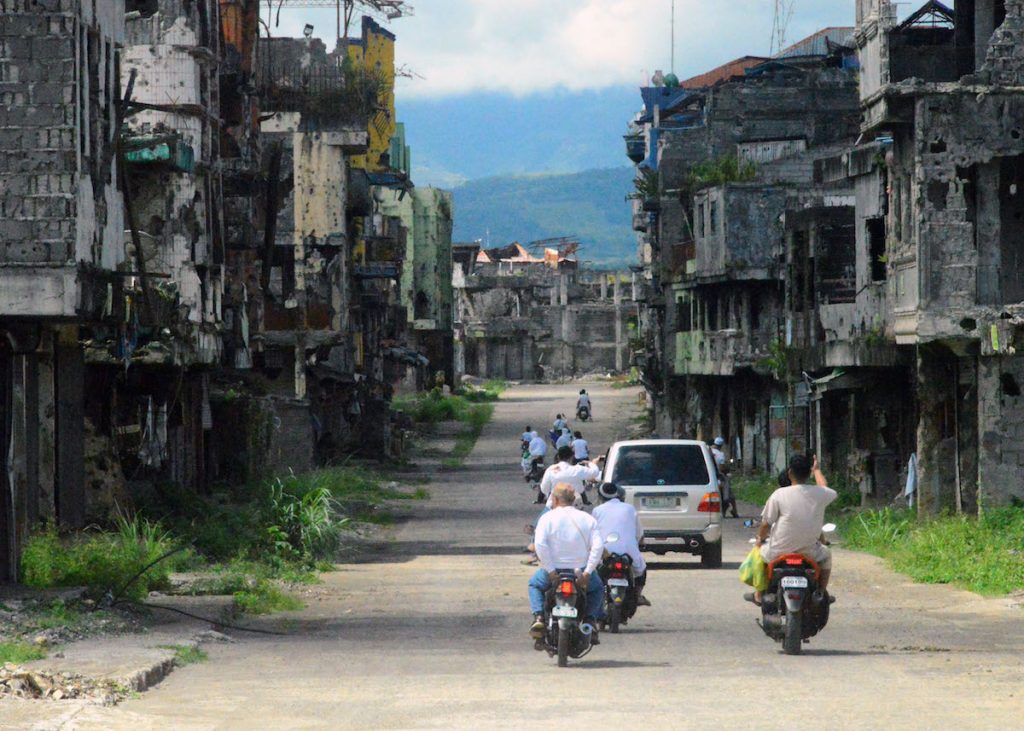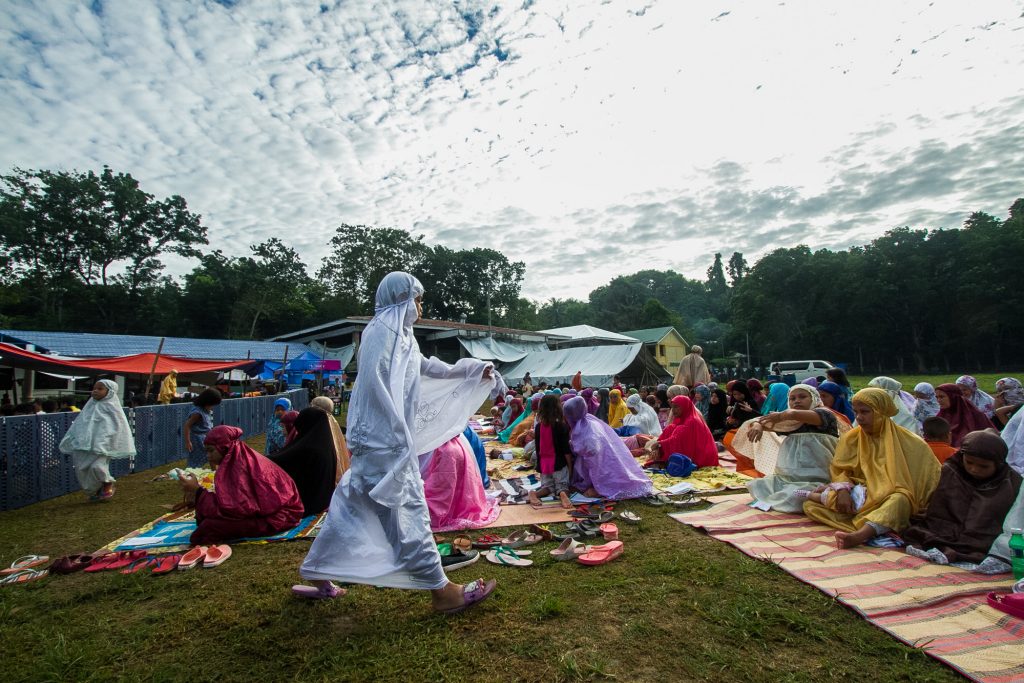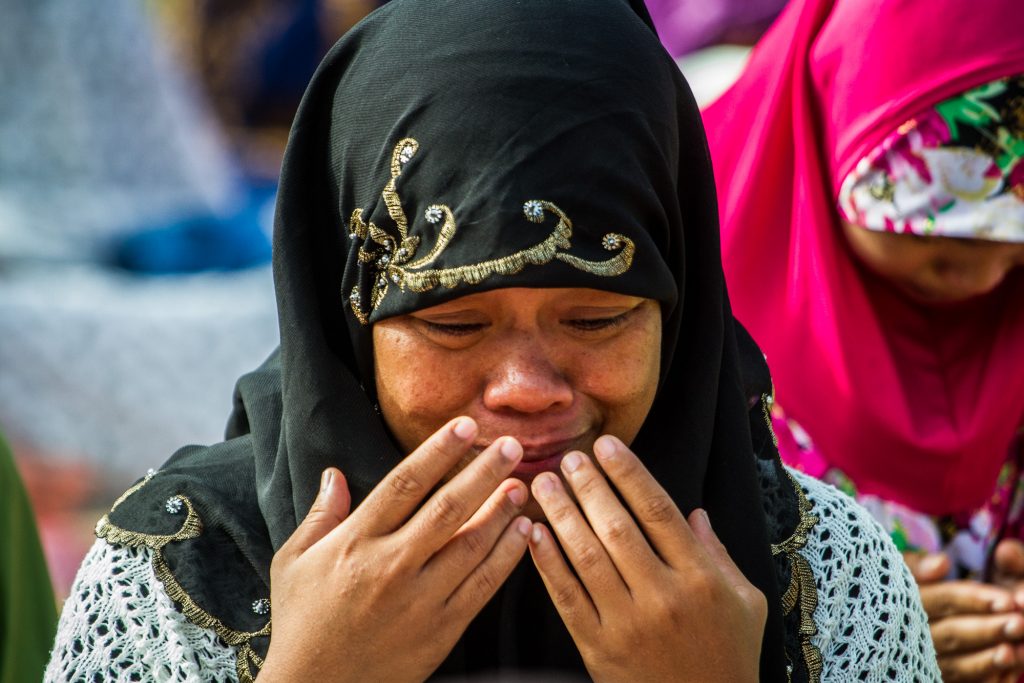
In the southern Philippine city of Marawi City, dozens of families are still unaware of the fate of loved ones who disappeared in the five-month armed conflict that started on May 23 2017.
“Life goes on. Four years has passed and it’s still hard to accept (what happened),” said 26-year-old Joel, whose father, a construction worker, remains missing.
“I thank him for raising us well. For instilling in us not to break the law. I just miss him so much because he was my guide (in life),” he shared while getting emotional.
Beyond the psychological pain of not knowing what has happened to their loved ones, families of the missing have economic, legal, and psychosocial needs.
Many have lost their breadwinners and face legal and administrative gaps that limit their access to social benefits and pensions.
The International Committee of the Red Cross (ICRC), which has been supporting families of missing persons since the siege, conducted an assessment in 2019 to evaluate these needs following the disappearance.
It showed that families’ top priority was to clarify the fate and whereabouts of their loved ones, followed by financial aid; and addressing the psychosocial challenges they face in dealing with absence.
Based on this assessment, the ICRC designed an accompaniment program that began in June 2020 to help meet these families’ needs.
The main goal of accompaniment is to strengthen the abilities of individuals and families to deal with difficulties related to the disappearance of their relatives and to eventually resume their social lives.
They can do this by maximizing their own resources and those available in the community and by creating a support network.
“Accompaniers” who have experienced the loss of a loved one were trained to set up peer-support groups of six to eight people from the same area. They met twice a month wearing masks in well-ventilated settings, with respect to COVID-19 protocols, in a span of six months.

In these sessions, facilitators taught participants better ways of coping and managing stress. The participants shared their emotions, daily struggles, and positive memories of the missing loved ones, as well as their own roles and the changes they faced after the disappearance.
“Having others experiencing this situation is important for healing. We are not promoting forgetting,” said Sherzod Musrifshoev, ICRC mental and psychosocial support delegate based in Iligan City.
“We are helping them to learn to live with the ambiguity and create a new hope and meaning in life,” he added.
The cycle of group sessions comprises of nine psychological and psychosocial support sessions. When the cycle is completed, families also benefit from two to three information sessions that tackle health or legal matters.
In its fifth session, families bring their missing relatives’ favorite food or items and share with the group the memories attached to them. This is followed by a group commemoration, an activity to represent their missing loved ones.
Participants choose the project and design the implementation themselves, while the ICRC provides them monetary support for the needed materials.
One group decided to plant 45 mahogany trees to symbolize their missing relatives’ presence, while families in Libertad, Misamis Oriental, built a waiting shed and a heart-shaped memorial signage to remember missing loved ones.
“When the accompaniment program concludes, we plan to still gather during special occasions related to our missing loved ones such as birthdays,” said Melissa, an “accompanier” from Libertad, Misamis Oriental, whose husband and son remain missing.
“The heart (signage) symbolizes our love, care, and honor and our respect to our families who disappeared during the Marawi siege,” she said.

The ICRC’s accompaniment program continues to date, expanding to the areas of Zamboanga and Cotabato cities in Mindanao where some families of missing persons live.
For them, time does not heal, answers do.
The active search for missing loved ones can continue for decades because the uncertainty of whether a loved one is alive or dead is unbearable and does not allow families to stop searching until they know.
Hundreds of thousands of people are missing around the world as a result of armed conflict, violence, migration and natural disasters. Some go missing in action. Some are forcibly disappeared.
Each year, thousands lose contact with their loved ones as they flee violence or seek a better life elsewhere. Many never return and are never heard from again. This represents a global humanitarian tragedy on a large scale.
As of today, more than 145,000 persons are registered as missing by their families with the ICRC, and new cases are added every day.
Far more people are missing and are not registered. It also only reveals part of the tragedy, as behind every missing person there are countless more people affected. – Courtesy of ICRC Newsroom
Source: Licas Philippines
0 Comments